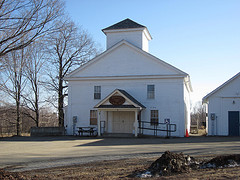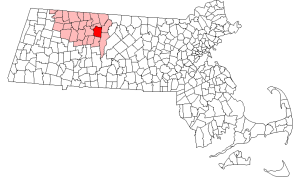
Wendell Town Hall. Photo: Doug Kerr
Wendell is a small (<900 people) “hill town” that’s either on the far western side of central Massachusetts, the far eastern side of the Connecticut River Valley and western Mass., or the far fringe of almost everything, depending on your perspective.
It was largely agricultural until the 20th century, but its farmers were never among the most prosperous in the area, and they felt the pressures of a commercializing farm economy sooner than most, which makes its history useful for thinking about how people have tried to adapt to the expansion of capitalist and industrial agriculture.
 The town has experienced more than one “back to the land” influx, and those continue to shape the agriculture that’s practiced here today.
The town has experienced more than one “back to the land” influx, and those continue to shape the agriculture that’s practiced here today.
It’s also where I live, which makes this project not only convenient and interesting for me but also grounds it philosophically and intellectually. This way of using history has an inherent localness, in dialogue with broad critical and contextual ways of thinking about our landscapes and the way we inhabit them. Localness has a lot of cachet right now, but this aims to go beyond a simple assumption that local = better. It’s more about “digging where you stand” and building knowledge outward from specific places–ideally, the places where we already are.
